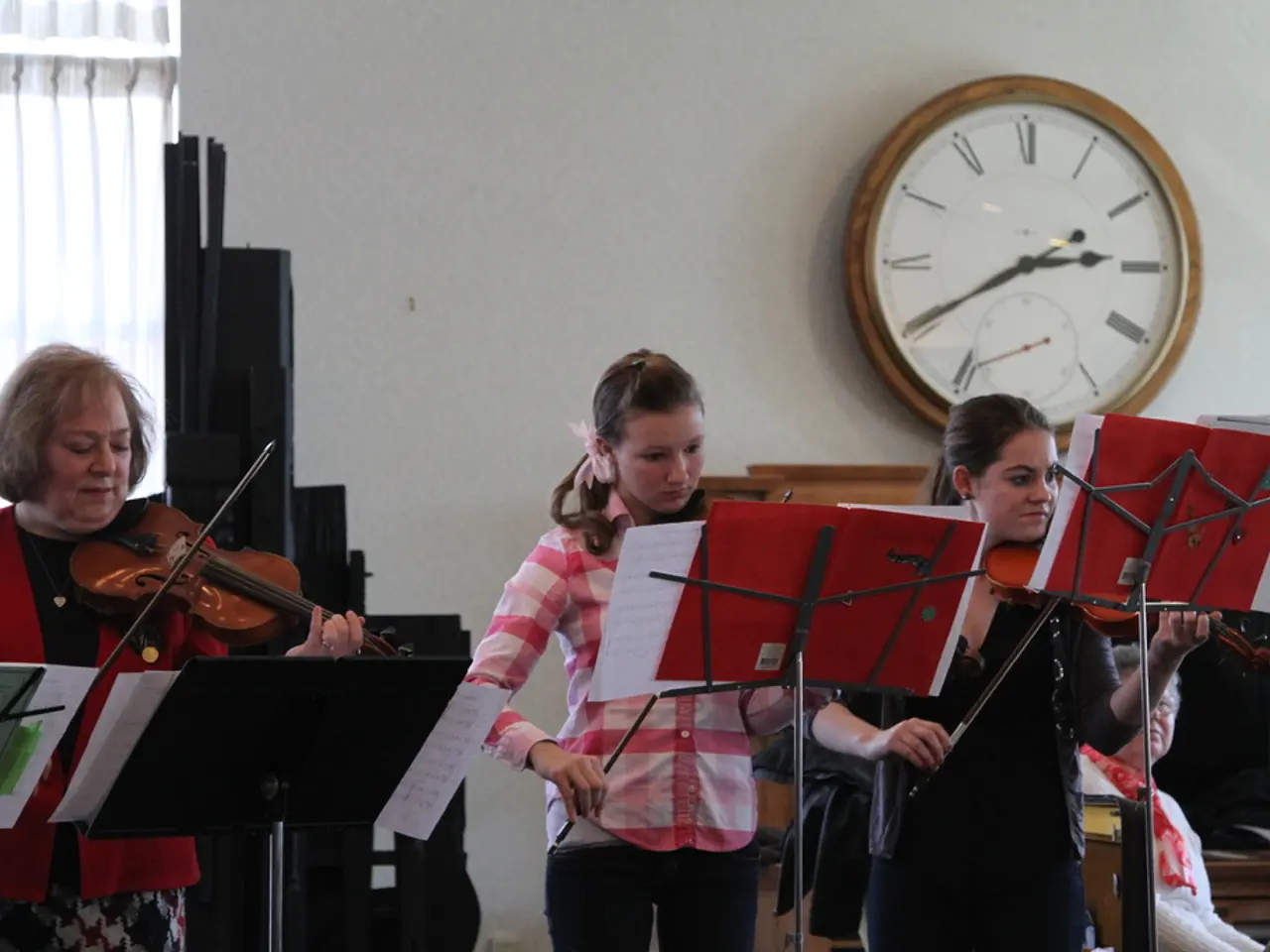Centenarian Anita Lasker-Wallfisch, a survivor of the Holocaust, celebrates her 100th birthday.
Anita Lasker-Wallfisch, a renowned cellist and Holocaust survivor, turns 100 this year. Known for her unwavering commitment to fighting antisemitism and promoting understanding, she has dedicated her life to sharing her experiences and using her music as a powerful tool for change.
**Early Life and the Holocaust**
Born in Breslau, Germany (now Wroclaw, Poland) in 1925, Anita was the youngest of three sisters in a middle-class family. Her parents, a lawyer and a violinist, valued education and music, and Anita received her first cello lessons from Leo Rostal.
In 1943, Anita, along with her sister Renate, was deported to Auschwitz-Birkenau concentration camp after their parents were murdered by the Nazis. Remarkably, Anita's skills as a cellist saved both her life and that of her sister when they were recruited into the Women's Orchestra of Auschwitz, directed by Alma Rosé.
**Liberation and Later Life**
In 1944, Anita and Renate were moved to the concentration camp at Bergen-Belsen, where they survived unimaginable conditions until the camp was liberated by British forces in April 1945. After the war, Anita emigrated to Britain and became a founding member of the English Chamber Orchestra.
**Activism Against Antisemitism and Racism**
Anita has been a vocal advocate for combating antisemitism and racism, drawing from her experiences during the Holocaust. She has spoken extensively about her time in Auschwitz and the importance of remembering the past to ensure that such horrors do not recur. In 2018, she gave a speech in the Bundestag that was named Best Speech of the Year 2018.
**Music and Its Role**
Music played a pivotal role in Anita's survival and became a cornerstone of her advocacy. Her cello skills were both a means of survival within the concentration camp and a symbol of resilience and hope. She has used her music to raise awareness about the Holocaust and to promote unity and understanding.
**Family Life**
Anita's family suffered greatly during the Holocaust. Her parents were murdered by the Nazis, and she was separated from her sisters during the war. Her sister Renata escaped the camps but later died in childbirth in Paris. Despite these personal losses, Anita's experiences have contributed to her strong advocacy for human rights and against hatred.
**Legacy**
Now in her centennial year, Anita Lasker-Wallfisch continues to inspire through her music and her unwavering commitment to fighting against antisemitism and racism. Her legacy serves as a testament to the power of resilience and the importance of remembering and learning from the past.
In a recent survey, it was found that 12% of Germans aged 18 to 29 have never heard of the Holocaust, highlighting the ongoing need for education and advocacy. Anita feels it is her duty to serve as a voice for the millions who were silenced during the Holocaust and to continue raising awareness about the dangers of hate and discrimination.
On this milestone birthday, Anita Lasker-Wallfisch is holding a concert in London, with dignitaries from all over the world attending. The event is a testament to her enduring impact and her commitment to using her experiences to promote understanding and unity.
- The media around the world has been covering the news of Anita Lasker-Wallfisch, a renowned cellist and Holocaust survivor, as she turns 100 this year.
- As a vocal advocate for combating antisemitism and racism, Anita's experiences in the middle East during war-and-conflicts have underscored her activism.
- Despite the general-news of crime-and-justice that prevailed during her early life and the Holocaust, Anita's dedication to education-and-self-development and personal-growth enabled her to survive and thrive.
- The government has expressed its appreciation for Anita's work, acknowledging her significant contributions to international relations and politics.
- As a symbol of resilience, Anita's music has transcended the boundaries of the concentration camps, serving as a powerful tool for change in the realm of world media.
- Looking ahead, Anita's legacy in the fields of international, personal growth, and music will continue to influence policymakers, scholars, and artists, promoting unity and understanding in the world.




